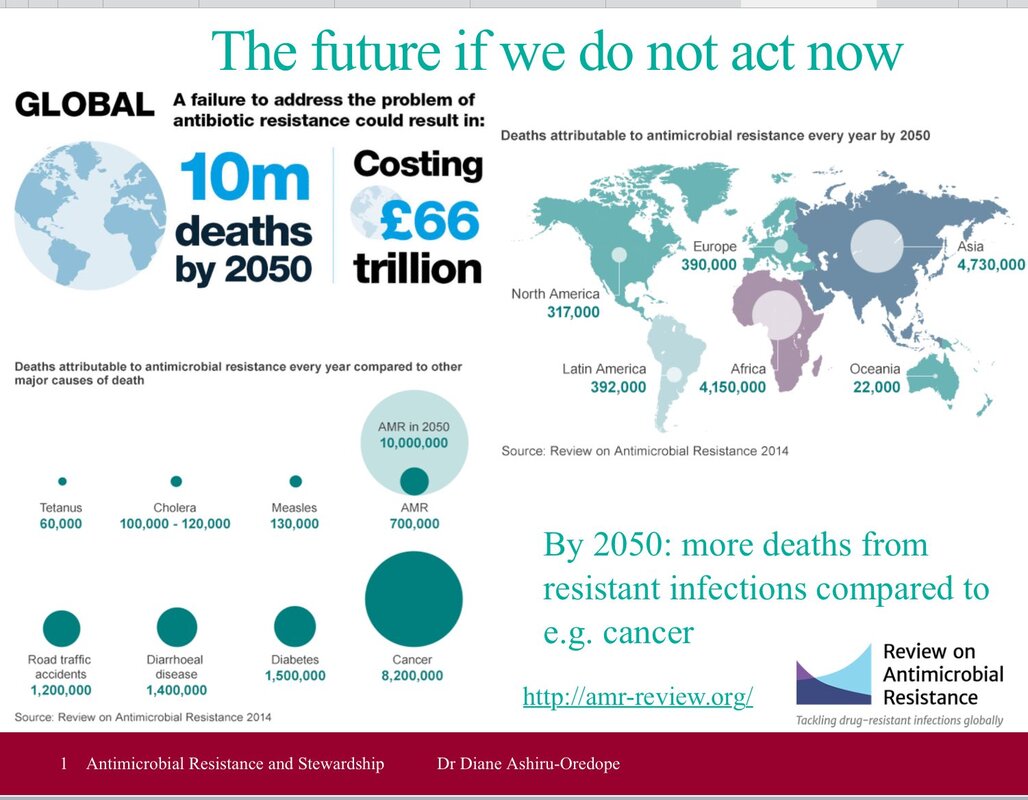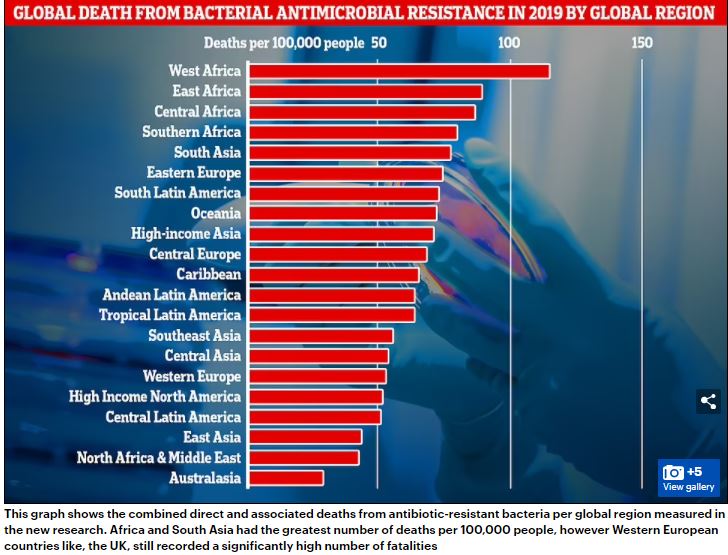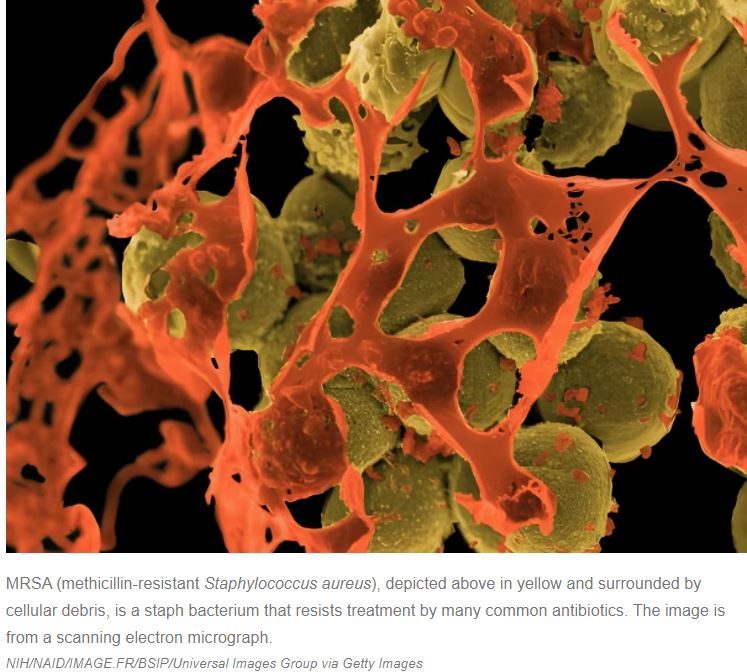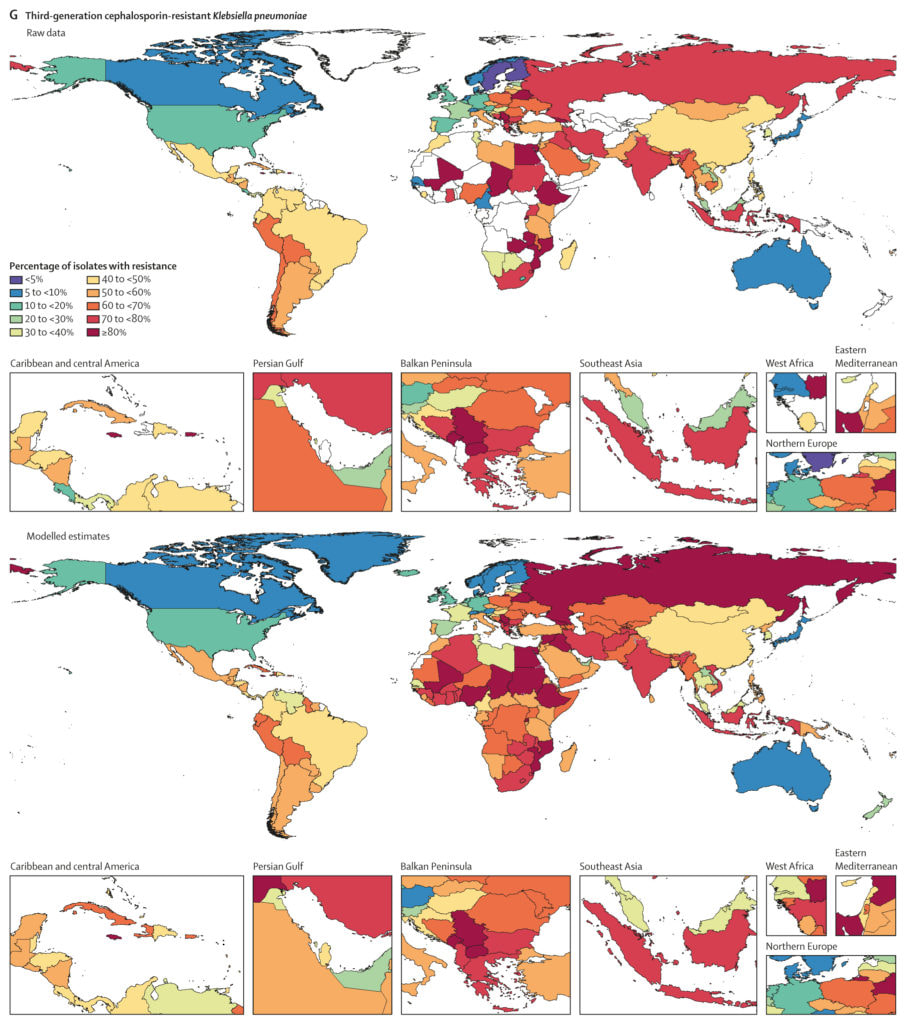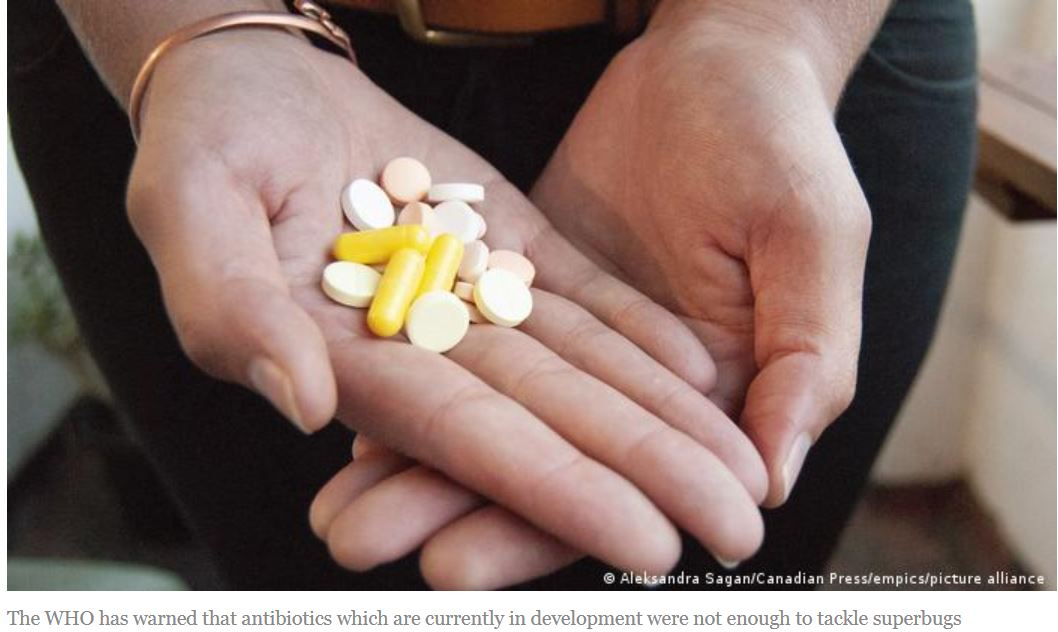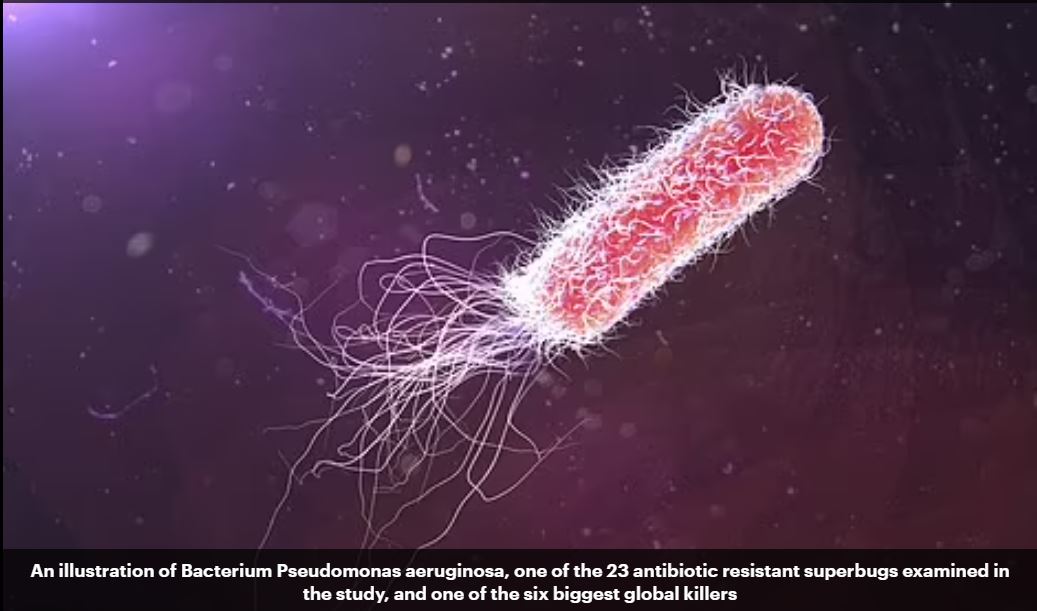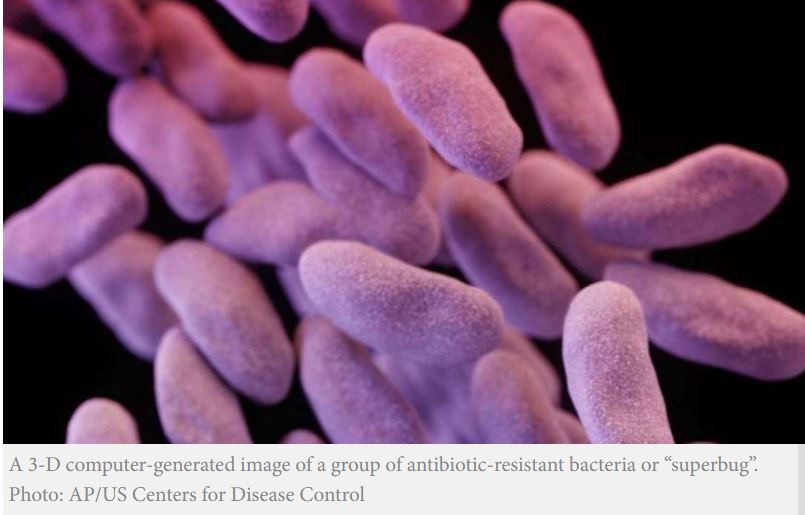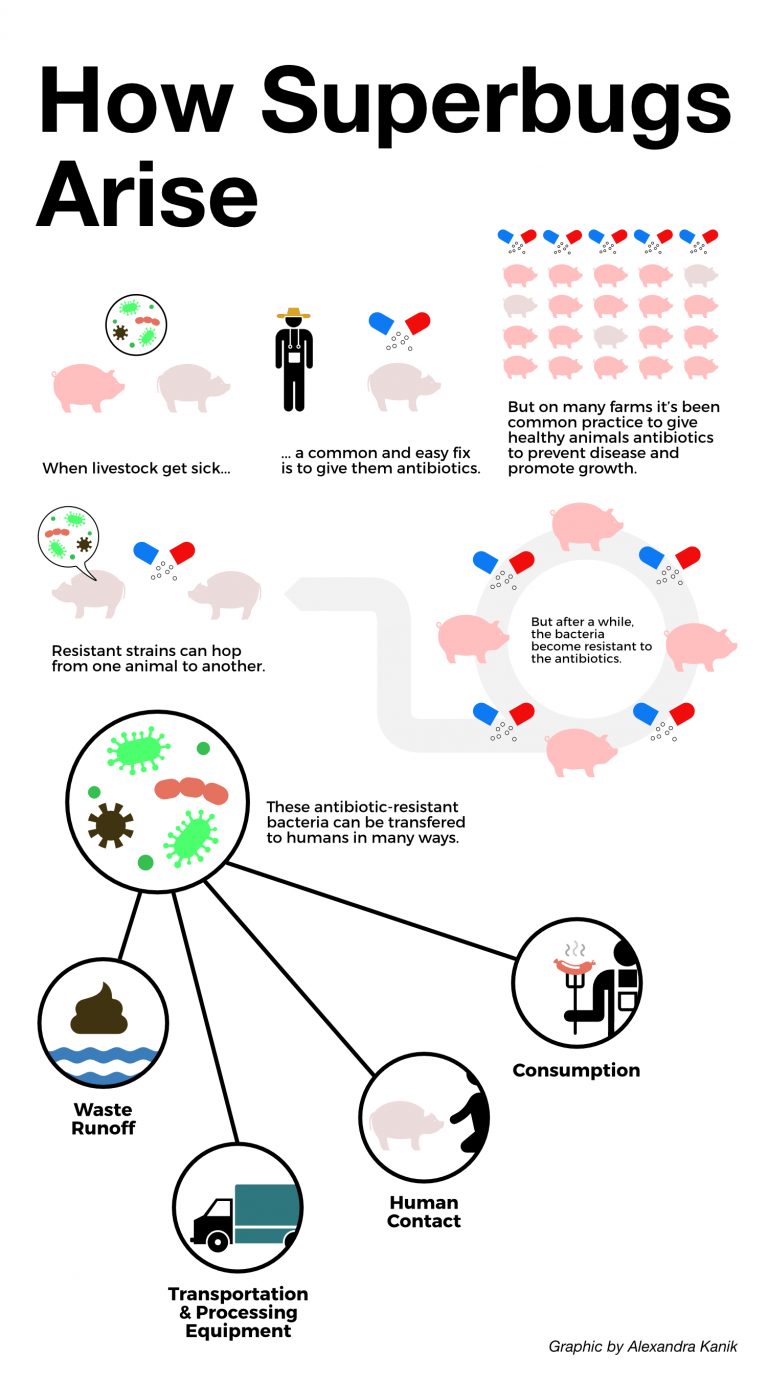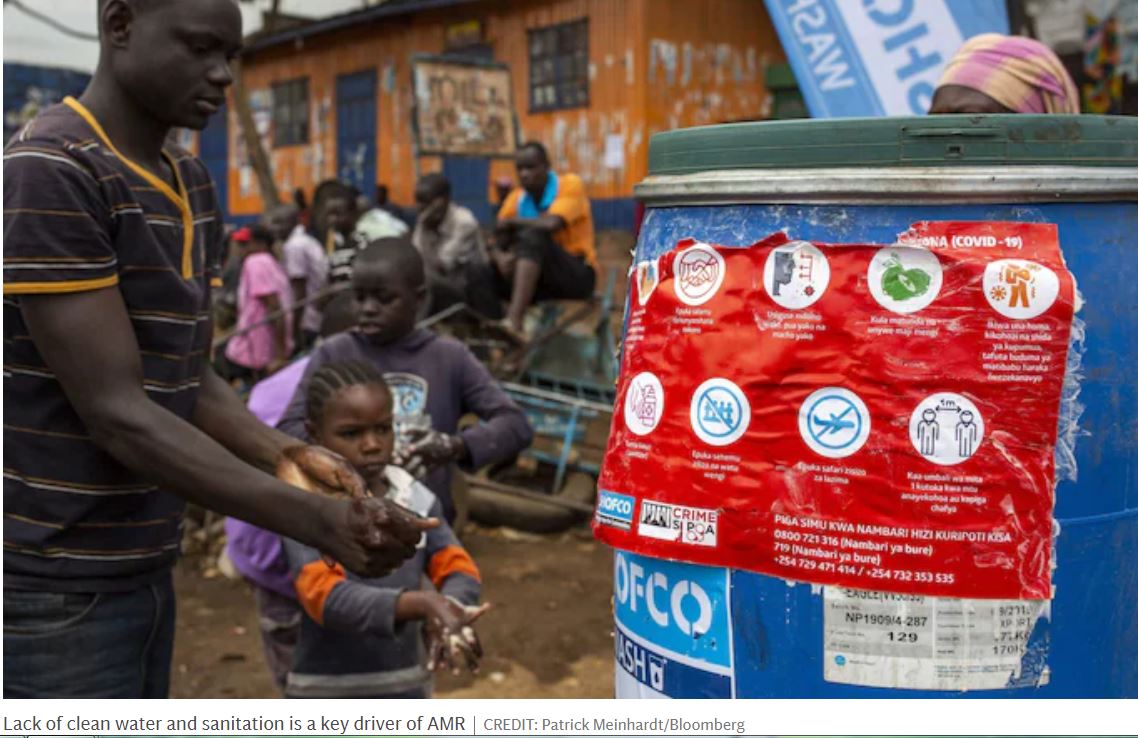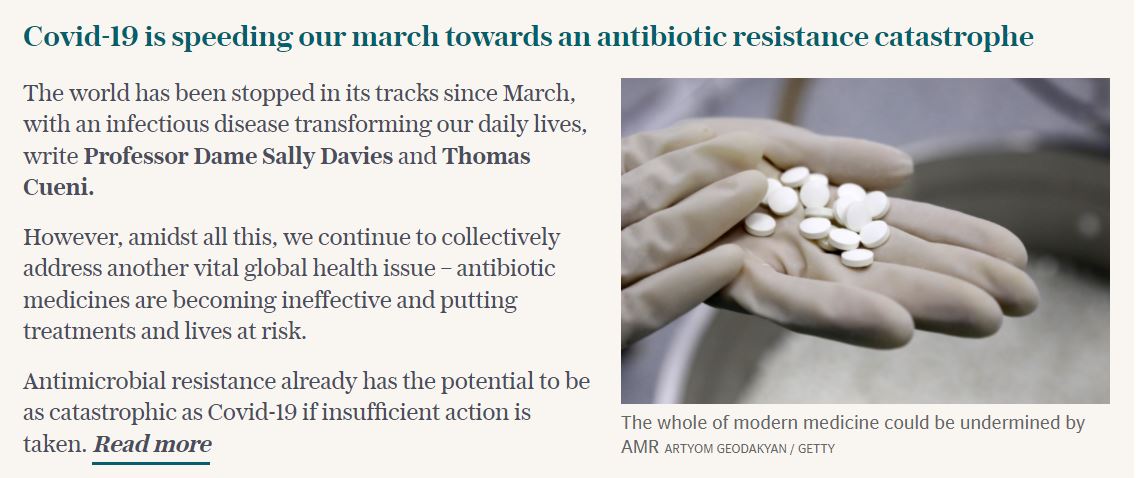24.01.2022
Antibiotic-Resistant Superbugs Kill More People Than AIDS Or Malaria: Study
More than a million people worldwide die each year from infections linked to microbes resistant to antibiotics, a new study has found. Researchers describe the threat as "one of the greatest challenges facing humanity." Superbug infections killed 1.2 million people in 2019, according to a study published in The Lancet on Thursday. Using data from 204 countries and territories, researchers found that drug-resistant bacterial infections directly caused 1.27 million deaths worldwide and were associated with an additional 4.95 million deaths. AMR(antimicrobial resistance)'s impact is now most severe in Sub-Saharan Africa and South Asia, while around one in five deaths is in children aged under five years. The overuse of antibiotics in recent years pushed microorganisms to evolve into superbugs meaning they are becoming less effective against serious infections. These deadly new strains of bacteria are causing untreatable blood infections, fatal pneumonia, relentless urinary tract infections, gangrenous wounds and terminal cases of sepsis, among other conditions. The World Health Organization warned that none of the 43 antibiotics in development or recently approved medicines were enough to combat antimicrobial resistance. The report highlights an urgent need to use antibiotics better, do more to monitor, prevent, and control infections, boost clean water and sanitation resources, and fund new drug development.
Credit: WORLD ECONOMIC FORUM
Credit: WORLD ECONOMIC FORUM
The health impact of pathogens varied widely based on location, with deaths attributable to AMR in sub-Saharan Africa most often caused by S. pneumonia (16% of deaths) or K. pneumonia (20%) – the latter is portrayed here.
Poverty deprives people of adequate education, health care and of life's most basic necessities- safe living conditions (including clean air and clean drinking water) and an adequate food supply. The developed (industrialized) countries today account for roughly 20 percent of the world's population but control about 80 percent of the world's wealth.
Poverty and pollution seem to operate in a vicious cycle that, so far, has been hard to break. Even in the developed nations, the gap between the rich and the poor is evident in their respective social and environmental conditions.
Poverty and pollution seem to operate in a vicious cycle that, so far, has been hard to break. Even in the developed nations, the gap between the rich and the poor is evident in their respective social and environmental conditions.




